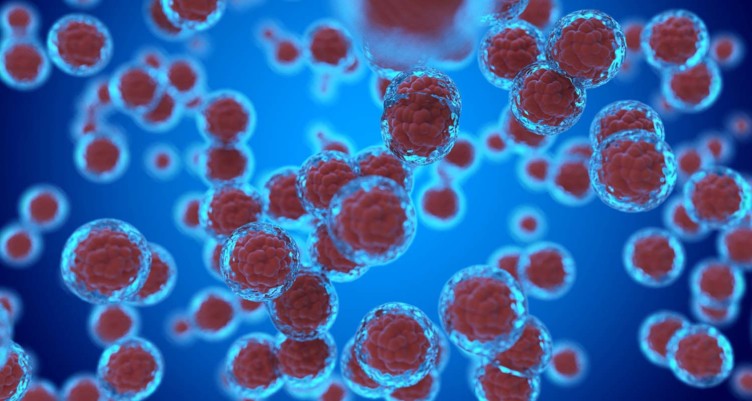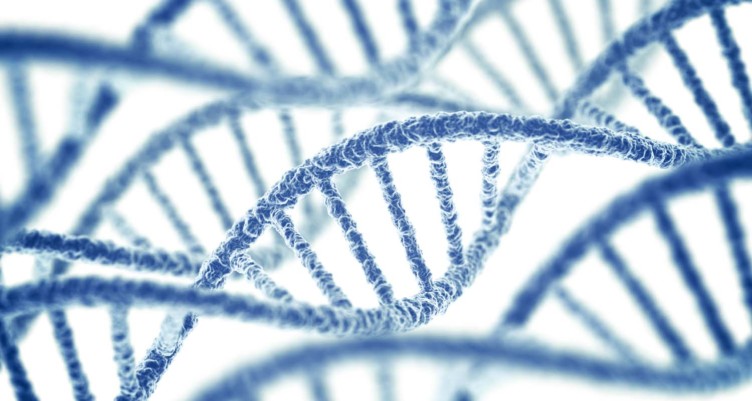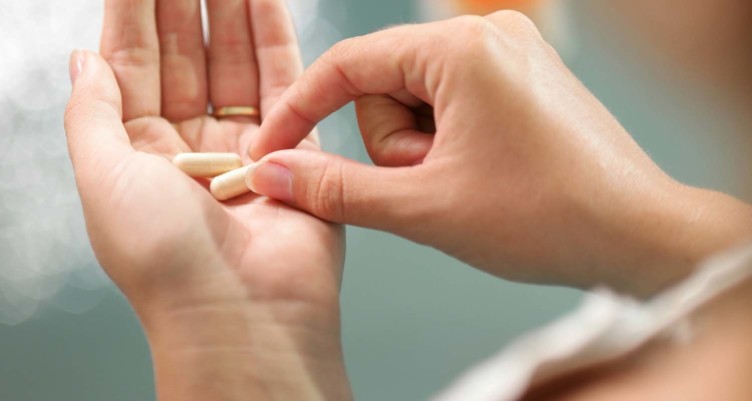What Is NAD+?

- NAD+, or nicotinamide adenine dinucleotide, is a coenzyme that supports many of the body’s biological processes.
- NAD+ helps protect cells from stress, supports healthy sleep cycles and helps repair damaged DNA.
- Natural levels of NAD+ decline as you get older. A high-quality NAD+ supplement can help support healthy aging.
When it comes to the supplements NAD+ doesn’t always get the praise it deserves. Amino acids, multivitamins and protein powders get all the attention, but if you’re looking to support healthy aging, listen up.
So, what is NAD+? Short for nicotinamide adenine dinucleotide, NAD+ is a coenzyme: a compound that certain enzymes need to do their work.[1] Cellular NAD+ is crucial for the basic reactions in your cells that keep you alive and it has many supportive health benefits.
But there’s a catch.
Your NAD+ levels decline as you get older.[2] But that doesn’t mean you can’t do anything to counteract nature. NAD+ supplements can be a great tool to help support healthy aging, as well as other important biological processes. And, when you take an energy supplement like Bulletproof KetoPrime (which doesn’t contain NAD+, but does increase overall ketone energy), you may support energy production at the cellular level.
Read on to find out what NAD+ and NADH do and how to boost your levels to keep your cells firing full throttle.
What Is NAD+ and Why Do I Need It?

NAD+ is a helper molecule. It picks up electrons and a charged hydrogen molecule to become NADH.[3] Then, it drops them off as part of the cycle that turns your food into energy that you use to move and think.
On a microscopic level, your mitochondria use energy to maintain balance and repair themselves when there’s damage or stress. Mitochondrial dysfunction may have a direct effect on age-related brain disorders. In fact, researchers believe impaired mitochondrial function and oxidative stress are linked to Parkinson’s and Alzheimer’s.[4]
Dr. Charles Brenner, PhD, is a professor of biochemistry and director of the Obesity Initiative at the University of Iowa. He explains that turning protein, fat and carbohydrates into energy requires NAD.
Meanwhile, to maintain blood glucose at night and create ketones requires NADH, which reoxidizes to NAD+. Dr. Brenner says NADH also reoxidizes to NAD+ when we make ADP, an energy-carrying molecule, from what we eat.
“This is required for all of our muscles to work and for ideas to be transmitted along our nerves and for us to hear,” he says.
Healthy eating may not benefit you if your cells can’t extract energy. NAD+ plays a key role in energy production. In short, we can’t function without it.
How NAD+ Works
Think of NAD+ as a waiter that picks up an electron from one table and drops it off at another. The oxidized form of NAD+ grabs electrons from one molecule. While it has a hold on the electrons, it becomes NADH. NADH donates those electrons to another molecule and it becomes NAD+ again.
The simple act of moving electrons around (aka redox reactions) helps your enzymes work. Those enzymes activate microscopic chemical reactions in your cells. This keeps them healthy and your whole body working.
But the amount of this vital cofactor in your body starts heading in the wrong direction as you get older.[5]
If you want to keep your energy metabolism operating properly, consider taking an NAD+ supplement. It can help support your body’s natural levels, which decline with age.
If your NAD+ levels are balanced, your cells may be protected against both impaired mitochondrial function[6] and oxidative stress.
NAD+ also ensures proteins[7] are in their proper form so they can do their jobs. For example, if the insulin receptor protein is the wrong shape, your cells will be unable to accept the delivery of fuel from your bloodstream.
NAD+ Benefits
It’s important to remember that most research on NAD+ comes from mammalian and in vitro studies. Still, there is plenty of evidence that reflects how important a role this coenzyme plays in supporting our health.
Many of your body’s key processes wouldn’t activate without NAD+. You need this coenzyme in metabolic pathways[8] including glycolysis and beta-oxidation. You also need NAD+ for oxidative phosphorylation, the process by which your body produces energizing ATP.
Plus, the role of NAD+ in longevity and long-term cellular health has made it a popular topic among those interested in healthy aging.
Let’s take a closer look at some NAD+ benefits, including how it may repair DNA damage.
Related: 13 Anti-Aging Supplements to Turn You Into Benjamin Button
1. Supports healthy aging

Proteins that regulate biological pathways are called sirtuin.[9] They protect your cells from age-related decline. Your cells use NAD+ to make sirtuin proteins work. Think of sirtuins as regulators. They play a crucial role in maintaining the length of telomeres[10], DNA strand end caps that keep our chromosomes from unraveling. Scientists have linked long telomeres with longevity.
Dr. Elissa Epel, PhD, is co-author of the New York Times bestseller “The Telomere Effect” and UCSF professor. “When we measure telomeres in midlife, they’re a pretty reliable predictor of who gets disease early and, in some studies, who dies early,” she says. “So, they do matter when we’re older.”
Because NAD+ levels drop[11] as you get older, you need enough NAD+ to keep telomeres long, which is optimal and support longevity.
CD-38 is a compound that destroys NAD+, which can have a positive effect depending on the amount that’s deployed. This compound keeps your NAD+ levels from increasing and disrupting your sleep-wake and hunger cycles. With age, though, an overproduction of CD-38 surpasses NAD+ levels.
2. Makes Cells Resistant to Stress and Protects the Brain

There’s plenty of research that shows that NAD+ protects cells from stress.
When researchers measured NAD+ levels, they were able to predict cell survival[12] when stressed. Sirtuins protect against oxidative stress[13] and NAD+ helps sirtuins work properly. Translation: Healthy levels of NAD+ may help your cells stay strong and resilient, especially in the face of stress.
Glutamate is a chemical that brain cells use to talk to other cells. It causes neurons to get excited, which releases free radicals and stresses them. Being in ketosis[14] increases the NAD+ to NADH ratio, which protects brain cells from damaging free radicals.
3. Helps DNA repair

NAD+ is involved in the repair of DNA damaged in normal day-to-day exposures and processes. It brings a negative charge[15] to places where DNA is damaged, which facilitates repair. This process seizes the NAD+ supply[16], which takes time and nutrients to restore. Studies show that replenishing NAD+[17] increases lifespan in animal models because it makes DNA repair more efficient.
4. Helps You Sleep And Eat At The Right Time

Scientists have identified the role of NAD+ metabolism in sleep cycles and hunger patterns. Your circadian rhythm is your sleep-wake cycle. It depends on light and dark, determines when you feel awake, when you feel tired and when you feel hungry. In general terms, it determines the flow of your day.
A healthy circadian rhythm, sirtuins and NAD+ are all interconnected. Sirtuins depend on NAD+ to work right. Circadian rhythm determines when NAD+ is available. If either sirtuins or NAD+ get disrupted, your circadian rhythm goes haywire.
Additionally, the circadian rhythm regulates the release of hunger hormones. NAD+ has shown an influence in regulating appetite and, by extension, even body weight.[18]
NAD+ Supplements And How To Increase NAD+ Levels

You don’t have to put up with the problems that come with NAD+ drops as the calendar continues to turn. Here are some natural ways to boost your levels:
- Consume NAD+ supplements: These come in capsule form and are easy to find. Nicotinamide riboside supplements, including niagen, get converted into NAD+ to give your levels a boost.
- Up your NAD+ building blocks: Give your body the raw materials with NAD+ precursors, which help your body produce NAD+ on its own. Specifically, tryptophan, nicotinamide mononucleotide (NMN) and three types of niacin (vitamin B3); these include nicotinic acid, nicotinamide (aka nicotinic acid amide) and nicotinamide riboside. You can get these nutrients in supplements, but also whole foods rich in vitamin B3 like beef, eggs and salmon.
- Take oxaloacetate: A higher ratio of NAD+ to NADH helps you make more energy and makes your cells work better. Oxaloacetate (OAA)[19] primes cells with the required building blocks to get more energy out of every ketone and helps modify glutamate. This highly bioavailable form of oxaloacetate supports healthy cells so they produce clean energy. Our KetoPrime supplement features a highly bioavailable form of OAA.
- Follow a high-fat, low-carb keto diet: Following the keto diet allows your body to enter ketosis, where it uses fat instead of glucose for energy and increases the NAD+ to NADH ratio. Higher NAD+ protects cells from oxidative stress. This stress is an imbalance[20] between free radicals and antioxidants that contributes to aging. Seeking clean and quality fat sources? Stock up on Bulletproof Brain Octane C8 MCT Oil and Bulletproof Grass-Fed Ghee.
- Practice intermittent fasting: Restricting your eating[21] increases NAD+ levels. Though calorie-restriction diets and periods of fasting will do it, they aren’t sustainable for the long term. Intermittent fasting is, if done right.
The bottom line: There’s no one fountain of youth pill. NAD+ can give you an edge when it comes to anti-aging, but without a balanced diet and lifestyle, you may not reap the full benefits. The best way to slow down aging is to do something to better yourself, physically and mentally, every single day.
Sign up for early access to sales, product launches, the latest Bulletproof news and more!
This article has been updated with new content.







